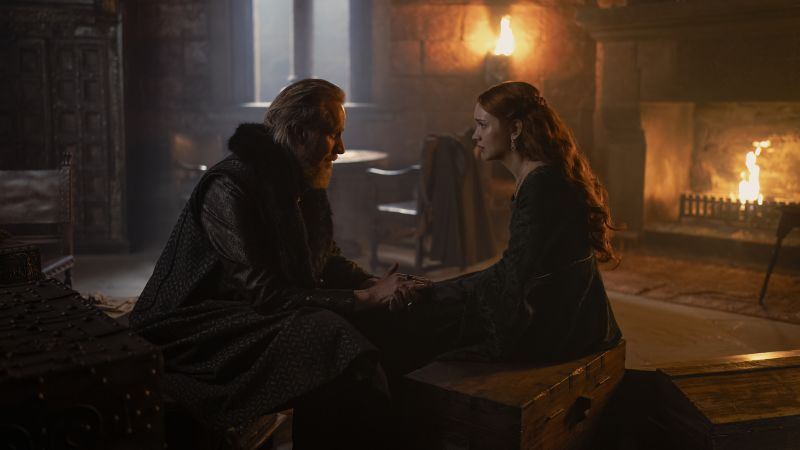Despite their immense popularity, the 'Game of Thrones' and 'House of the Dragon' franchises continue to confound some viewers. This article aims to unravel the complexities of these sprawling sagas, examining their unique storytelling approach, complex characters, and enduring appeal.
In the realm of fantasy television, few shows have achieved the cultural dominance of 'Game of Thrones' and its prequel series, 'House of the Dragon'. These sprawling sagas have captivated audiences worldwide, amassing legions of loyal fans and spawning countless discussions, theories, and controversies. However, despite their massive success, these shows have also left some viewers perplexed, struggling to grasp their allure.
One of the defining characteristics of both series is their intricate storytelling. Unlike many other fantasy shows that focus on a linear narrative, 'Game of Thrones' and 'House of the Dragon' feature a sprawling, multi-threaded plotline that follows dozens of characters across multiple locations. This complex tapestry demands a high level of attention and engagement from viewers, as they must navigate a labyrinthine web of characters, relationships, and events.

Deciphering the Enigma of 'Game of Thrones' and 'House of the Dragon'
Furthermore, the shows are renowned for their morally ambiguous characters. The heroes are often flawed and imperfect, their actions driven by both noble intentions and selfish desires. The villains, too, are not simply evil for the sake of it; their motives are often understandable, if not excusable. This moral complexity forces viewers to confront their own biases and preconceptions, as they grapple with the shades of gray that inhabit these fictional worlds.
Moreover, 'Game of Thrones' and 'House of the Dragon' are known for their unflinching realism. The world they depict is a harsh and unforgiving place, where violence, betrayal, and treachery are commonplace. The characters are constantly tested and their lives are never safe. This sense of danger and unpredictability keeps viewers on the edge of their seats, as they witness the rise and fall of empires and the fates of their beloved characters.
Some viewers have found the level of violence in these shows to be excessive and gratuitous. However, it is important to note that this violence is not simply a means of shock value. It is an integral part of the storytelling, reflecting the harsh realities of the medieval world in which the shows are set. The violence serves to highlight the fragility of life, the ruthlessness of power, and the consequences of war.
Another reason for the shows' success is their stunning visuals and production values. The costumes, sets, and special effects are all meticulously crafted, immersing viewers in the vibrant and immersive worlds of Westeros and Essos. The production team has gone to great lengths to create a sense of authenticity, from the elaborate armor of the knights to the intricate architecture of the castles.
In addition to their narrative and visual strengths, 'Game of Thrones' and 'House of the Dragon' have also benefited from a strong marketing campaign and a dedicated fan base. HBO has invested heavily in promoting the shows, creating a massive buzz around their premieres and keeping them in the public consciousness through social media and merchandise.
Furthermore, the fans of these shows are incredibly passionate and engaged. They participate in online forums, attend conventions, and create countless pieces of fan art and fanfiction. This enthusiastic community has helped to sustain the popularity of the shows and keep them relevant years after their initial release.
Of course, 'Game of Thrones' and 'House of the Dragon' are not without their detractors. Some have criticized the shows for their slow pacing, convoluted plotlines, and excessive use of violence. However, these criticisms should not overshadow the immense achievements of these cinematic masterpieces.
In conclusion, 'Game of Thrones' and 'House of the Dragon' are complex and challenging shows that require a significant investment of time and attention. However, for those willing to embrace their intricacies, these shows offer a rich and rewarding viewing experience that will stay with them long after the credits have rolled.



